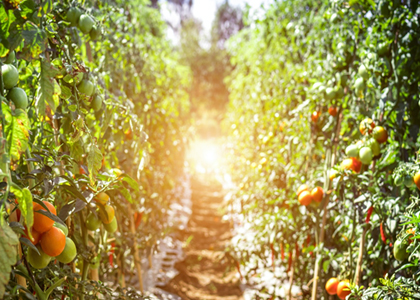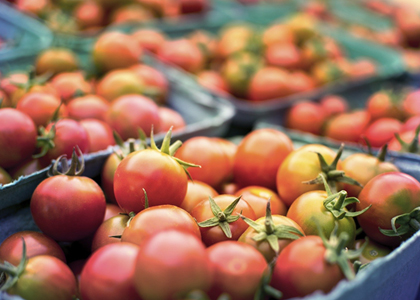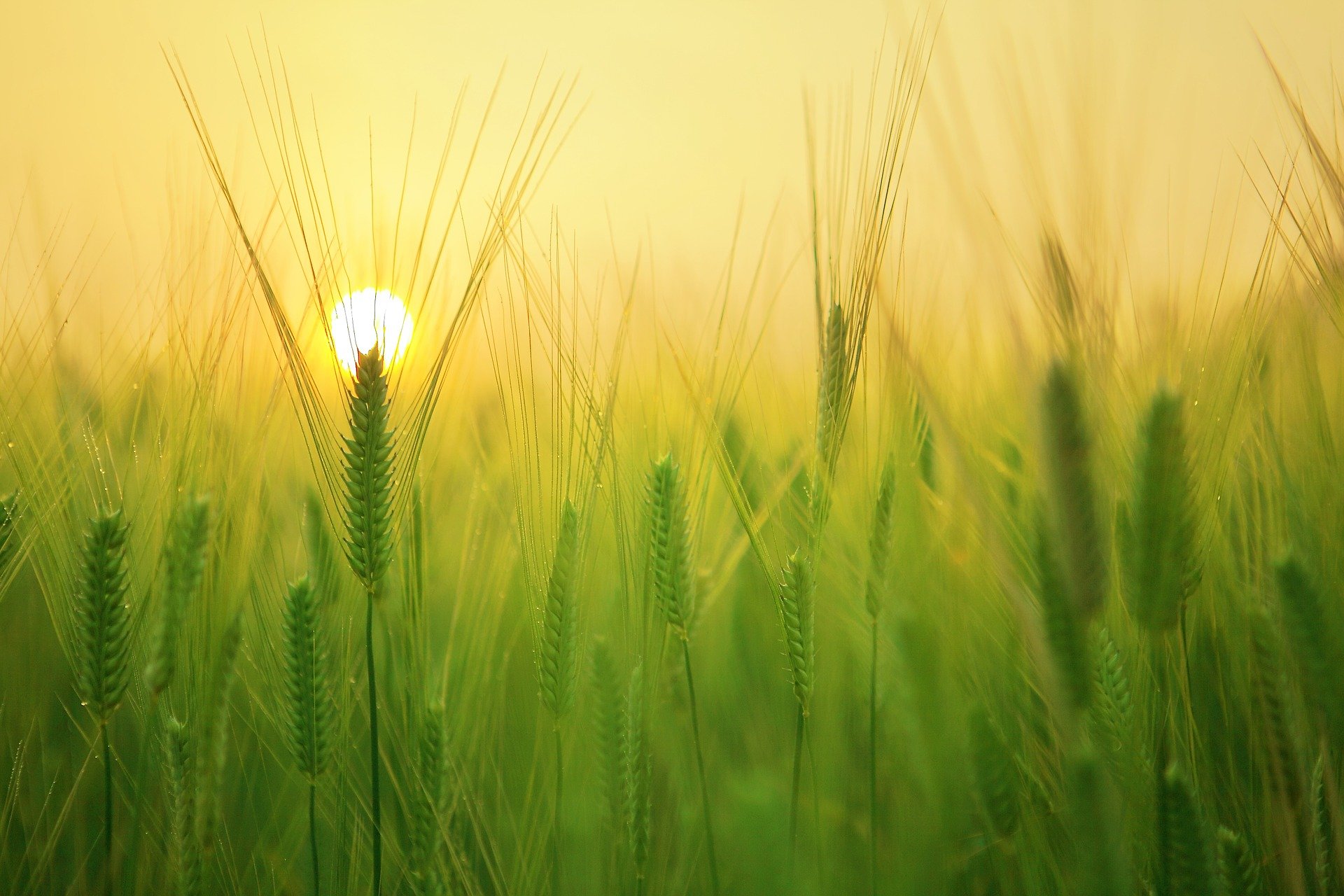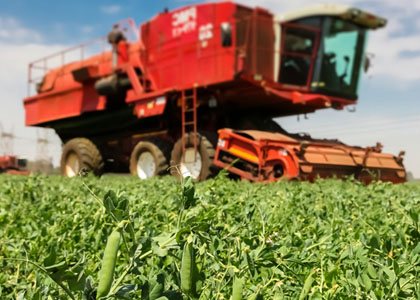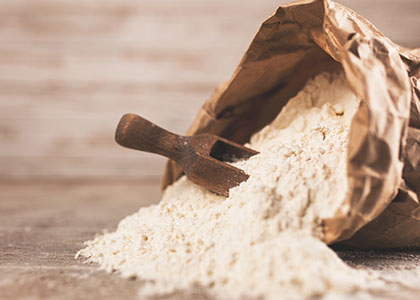Home / Blog / Can hydroponics take your agri business to the next level? Here are 5 key things you need to know!
Summary
In the next five years, the regional average water accessibility is expected to be 500 cubic meters per person, per year. Within the Kingdom, we have a growing population, a deficiency of freshwater, dangerous climatic conditions, and less than 1.4% of the land is arable. Saudi Arabia also has high population growth rates, expanding shortfalls for growing food, highly variable income levels, and limited natural capital.
Furthermore, the events of 2020 have thrown the country into an even deeper debate over how to balance food security with water scarcity. The coronavirus pandemic has brought into sharp relief economic vulnerabilities, system inefficiencies, and sectorial risks in the country.
In a bid to diversify food supply sources, the government is looking to invest in local agricultural production to enhance storage capacity domestically and decrease food waste.
As a farmer, this presents a huge opportunity for growth for you and your business. With government-supported encouragement through easily available loans in water-saving technologies like hydroponics and greenhouse farming, you can potentially take your business to the next level. These technologies allow you to increase capacity and yield to produce more with fewer chemicals. This also reduces pressure on non-renewable resources.
In this article, we discuss the pros and cons of hydroponic farming to help you decide if it is a viable option for you.
INDEX
- WHERE YOUR AGRICULTURAL BUSINESS STANDS RIGHT NOW
- WHAT IS HYDROPONIC FARMING?
- ADVANTAGES OF HYDROPONIC FARMING
- CHALLENGES OF HYDROPONIC FARMING
- HYDROPONIC FARMING AS A SOLUTION FOR YOU
CAN HYDROPONICS TAKE YOUR AGRIBUSINESS TO THE NEXT LEVEL?
5 KEY THINGS YOU NEED TO KNOW!
A Reuters report published in Gulf News in May highlights that Saudi Arabia is spending approximately SAR 2 billion to import agricultural products and secure food supplies during the coronavirus pandemic. Imported products include rice, sugar, soya beans, and yellow corn – staples in the Saudi agricultural ecosystem. More products are expected to be added to the list as demand rises.
Whilst the pandemic has been crippling across multiple fronts, it has once again brought the country’s dependence on food imports to the forefront, forcing academics, policymakers, and agriculturalists to rethink future farming strategies.
If there was ever an impetus for you as a farming organization to change strategies to more self-reliant agricultural methodologies, it’s now. Amongst the debate driving the conversation forward, hydroponic farming is gaining serious traction as an implementable solution for the country.
Here are five key things you need to know about hydroponics that can directly impact your bottom line.

- WHERE YOUR AGRICULTURAL BUSINESS STANDS RIGHT NOW
- Saudi Arabia is one of the eight most water-scarce countries in the world. Irrigation is and will remain a constant challenge for farmers like you. 85% of ground water resources are currently used for agriculture. As there is a limited level of renewable freshwater, as a farmer you will require additional water resources, increasing the demand for desalinated water.
- Water desalination requires energy. The Middle East accounts for 90% of fossil-fuel thermal desalination globally (led by the UAE and Saudi Arabia). The International Energy Agency estimates that water desalination in the region will increase fourteen-fold by 2040. With increasing industrialization and population, this means that the water available to you for agriculture will steadily become more expensive, adding to your production costs.
- Saudi Arabia imports an estimated 80-90% of its food. The current pandemic has made governments the world over insecure about food supplies. This holds even truer for Saudi Arabia as we are more exposed to supply chain variances. The government, therefore, will support and encourage local options and alternatives.
- Saudi Arabia’s food import bill is estimated at USD 35 billion as of December 2019 and is expected to grow in the future. The government has announced an action plan of SAR 180 million in April as direct support for small-scale farming enterprises. It makes sense to take advantage of these government-supported initiatives and measures and move from traditional farming methodologies to more modern ones.

- WHAT IS HYDROPONIC FARMING?
There are not many farming solutions open to countries with extreme climates like ours. However, hydroponic farming is gaining a fair amount of attention as a solution in the Middle East, particularly in the UAE.
Whilst countries like the Netherlands, France and Germany have actively been using hydroponic farming techniques for a while now, there is still some confusion about what it entails.
Hydroponics, by definition, is a method of growing plants in a water based, nutrient-rich solution. Hydroponics does not use soil; instead the root system is supported through an inert medium such as perlite, rockwool, clay pellets, peat moss, or vermiculite.
The basic premise behind hydroponics is to allow the plant’s roots to come in direct contact with the nutrient solution, while also having access to oxygen, which is essential for proper growth. The technology is environmentally safe, high-producing and decreases the pressure on land and water.

- ADVANTAGES OF HYDROPONIC FARMING
To know if hydroponics is a workable solution for you, we list some pros:
- No soil needed: Hydroponic farming is a great option in countries or areas where there isn’t much arable land, or the soil is heavily contaminated or saline.
Because it eliminates soil from the plant growth ecosystem, soil-related irritants like weeds, pests and diseases like fusarium, pythium, and rhizoctonia are also eliminated. - Less use of insecticides and herbicides: In the absence of soil, weeds, and diseases, plants can grow without additional chemicals.
This helps you grow cleaner and healthier foods and is one of the reasons why hydroponic farming is gaining a lot of popularity. - Climate controlled: Hydroponics allows for total control over the climate, including temperature, humidity, light intensification, and composition of the air.
You can grow food all year round rather than through specific seasons.
- Water-efficient: Hydroponically grown plants consume less water.
They can be grown using 10% of the water used in open field plants as irrigation systems recapture water and recirculate it. Water loss is further minimized from evaporation or leakages within the system. - Effective use of nutrients: In hydroponics, you have 100% control of the nutrients the plant needs.
You can check nutrient compositions and set specific amounts at different stages of plant growth. Nutrients are conserved as all spill off is caught. - pH control of the solution: In hydroponic farming, minerals are mixed in water.
That means you can measure and adjust the pH levels of your water mixture much more easily as compared to soil. This ensures optimal nutrient uptake for plants. - Better growth rate: As hydroponic farming allows control over environmental factors, plants grow faster.
You can adjust temperature, lights, moisture, and nutrients, placing plants in ideal growing conditions to encourage maximum growth. - Time saving and less labor intensive: When done right, hydroponic farming requires less time and attention than traditional farming.
You do not need to till, water, cultivate, and fumigate for weeds and pests. Plant care is more technology-based, saving you time and energy.
- CHALLENGES OF HYDROPONIC FARMING
Whilst hydroponics offers many benefits, there are still challenges you need to be aware of to make an informed decision.
In traditional farming, plants can find sustenance from nature, even if they are left neglected. But the same does not hold true for hydroponics.
Here are some cons to consider:
- Upfront initial expense: Unlike traditional farming, hydroponic farming is an expensive undertaking as it requires an entire plant eco-system to be set up from scratch.
Depending on the size and scale of the system you build, you will need containers, lights, irrigation systems and pumps, timers, and nutrients. Once the system is in place, you will incur regular water and electricity expenses. - Long return on investment: If you follow the news on agriculture, you will notice that there has been growing interest in hydroponic farming businesses However, commercial growers still face big challenges when applying hydroponics on a large scale.
This is because huge initial capital is required for setting up, and there is a long, uncertain return on investment. This acts as a further deterrent when farmers like you consider moving from traditional agricultural practices, where there is existing information, labor and expertise. - Requires experience and technical knowhow: In a hydroponic setup, plants will die out more quickly without proper care and adequate knowledge.
You need trained personnel to manage not only the many types of equipment, devices and irrigation systems, but to know exactly how much water, nutrition and light each kind of plant needs. Without this kind of meticulous attention and care, plants will die faster, costing you even more money through losses. - Water and electricity risks: A hydroponic system mostly uses water and electricity.
This runs a risk of electrocution for untrained staff working the premises. This means that areas need to be regularly monitored and checked for system failures. - Risk of fast-spreading diseases and pests: As you are growing plants in a closed water system, plant infections or pests can spread very quickly through the farm.
For large scale hydroponic greenhouses, you need strict and enforceable disease-management mechanisms. - Organic debate: There has been heated debate about whether hydroponics can be classified as organic farming. Purists argue that plants grown hydroponically do not contain microbiomes as they are not grown in soil.
However, people around the world who are growing lettuce, tomato, strawberries, etc., hydroponically, implement organic-growing methods by using organic media, such as coco coir, adding worm casting, bones, alfalfas, cottonseeds, and neems to the plants.

- HYDROPONIC FARMING AS A SOLUTION FOR YOU
With rising local consumption, increasing demand for food and a scarcity of arable land, hydroponics is considered one of the only viable solutions to help Saudi Arabia meet its food supply shortfall.
It helps to keep in mind that the average vegetable yield in the field is about 5 tons per acre. Hydroponic techniques in greenhouses can enhance yields up to 200 tons for each acre planted.
Here are a few additional reasons why it could work for you:
- Future of farming: Hydroponics is one of the only long-term solutions for countries with extreme climates like ours. By expanding greenhouses for farming needs and introducing hydroponic systems, more foods can be locally grown, reducing the pressure on imports.
- Hydroponics provides an effective solution to attaining self-sufficiency in food, as the technology utilizes space more efficiently. Trays can be stacked on top of one another, and plants can be placed closer than in soil. This makes it a more space-efficient method than traditional farming. Since nearly all environmental conditions can be controlled artificially by the farmer, you can use urban spaces like buildings, warehouses, etc., to grow exotic plants like salad crops to meet local demand. In addition to providing fresh farm-to-market foods, it also reduces transportation waste and costs. Hydroponics empowers you to grow food anywhere. You can support livestock with your own locally produced animal fodder.
- Hydroponic systems allow water to be recycled. This is a huge benefit for the KSA where water resources are scarce. This saves you additional costs and allows for greater experimentation on what can be grown.
- Cyclones and increased rainfall in recent years have allowed locusts to breed faster, leading to the current locust swarms in the country. When done right, hydroponics effectively saves you from any agricultural losses from pests and plant diseases.
- Farming monoculture, i.e. the agricultural practice of producing or growing a single crop or plant in a farming system at a time, is not a problem. You do not need to think about crop-rotation and in-demand crops can be focused on throughout the year, as nutrient-exhaustion is not a problem.
- It allows scalability. Hydroponics is a contained system that can be scaled up or down to match demand.
- Hydroponic systems can help you grow strawberries, leafy greens, tomatoes, and animal fodder like barley, yellow maize, corn, and cowpea.
OVERVIEW
Reviewing the pros and cons of hydroponics suggest that the farming system could be a good fit for Saudi Arabia.
- With more farmers investing in hydroponic farming in the UAE, there is sufficient regional information and knowhow to implement hydroponic systems across largescale commercial farms.
- What’s more, Saudi Arabia is a good fit for indoor farming because of affordable and reliable power resources.
- Moreover, the increased derived demand for food and beverage consumption in the country creates a huge potential for hydroponics adoption.
If you are considering a shift in farming methodologies, or upscaling an existing enterprise, now is the perfect time.
The pandemic has put pressure on international supply chains, and farm tech experts recommend self-reliance. Experts also believe that if applied correctly, the use of hydroponics and vertical farming can eventually help the Middle East rank amongst the top food produce exporters in the world.
For more information on how to move to hydroponic farming and advise on systems, get in touch with Agri or email hello@agri.com.sa.



